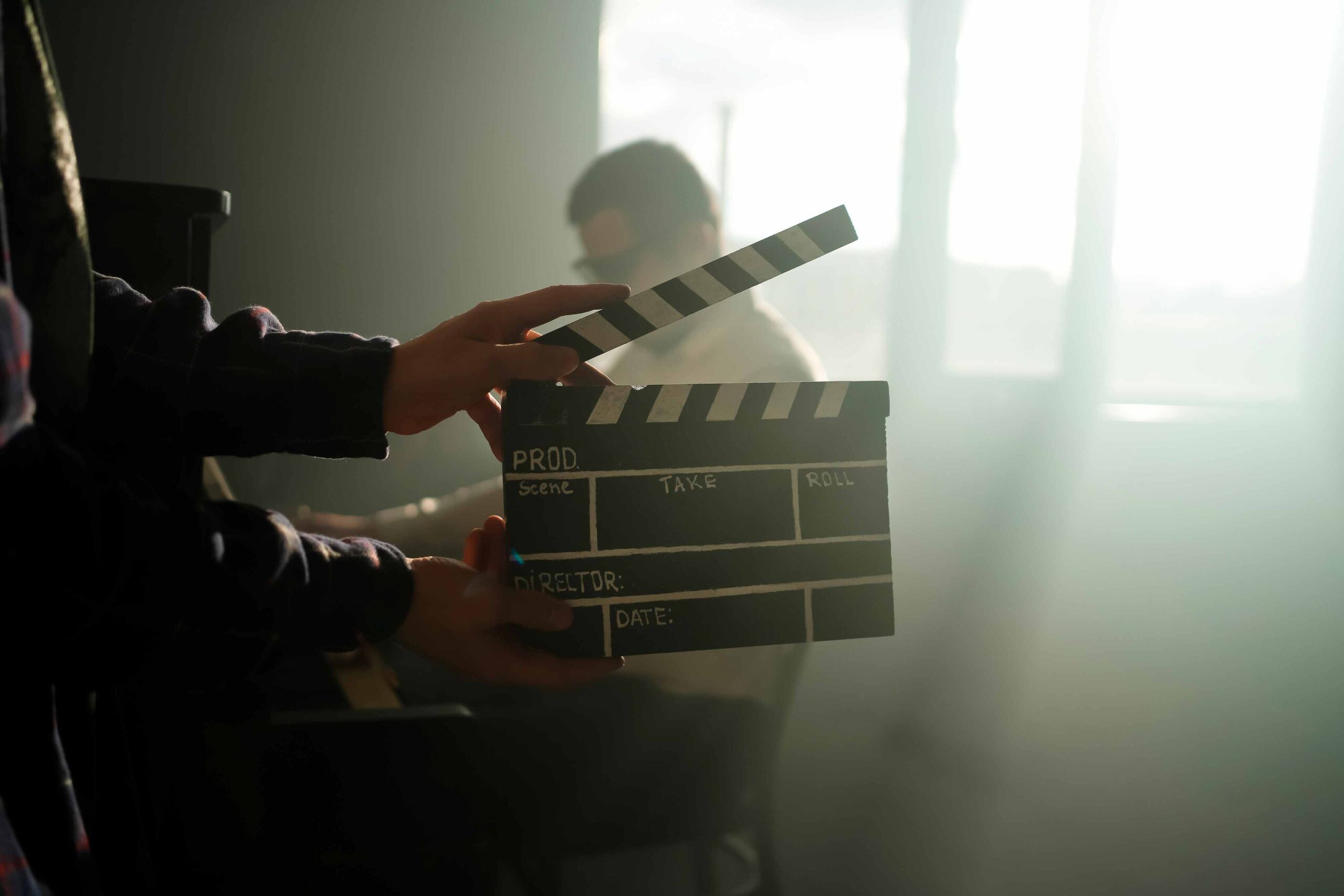- Sectors
- Aerospace & Defense
- Big science
- Biotechnology
- Fintech
- Insights

Technological advances and, in particular, artificial intelligence (AI) have brought about a radical transformation in the entertainment sector, with a particular impact on the film industry in recent decades. From pre-production to post-production, AI is revolutionising the way blockbuster films are created, offering greater efficiency, creativity, personalisation and huge cost savings.
Without going any further, the last quarter of 2023 was marked in the film industry by the Hollywood staff strike that lasted 118 days and was preceded by the screenwriters’ strike in May of the same year. Among the main demands of the 160,000 actors and 11,500 screenwriters involved was the regulation of Artificial Intelligence, with special attention to the creation and writing of scripts or the use of deepfake, which allows actors to be replaced by replicating their physical appearance, voice and movements.
However, Artificial Intelligence offers some of the following advantages, which should not always have a negative impact on employment in a sector that employs almost 2.5 million people in the United States alone.
Some of the areas in which AI is revolutionising movie blockbusters include:
In addition to the aforementioned cases, which are already a reality, Artificial Intelligence is set to revolutionise the sector in terms of production and consumption.
One of those responsible for this revolution will be the arrival of immersive cinema, which, supported by Virtual Reality (VR), will allow the spectator to move freely through the scene.
On the other hand, it is worth mentioning the generation of films through a combination of images and text that will undoubtedly help to boost the creativity of filmmakers. In this respect, already in February this year, OpenAI presented Sora to the public, which for the moment will only allow the creation of clips of a few seconds but opens the door to the creation of complete films in this way.
As we have already seen, artificial intelligence is changing the rules of the game not only in the film industry, but across the entire entertainment sector. A great example is the world of video games, where it offers efficiency in production, realistic visual effects, improvements in post-production, content personalisation and advanced data analysis.
The metaverse, a concept that has become increasingly relevant in recent times and is transforming the film industry and audiovisual creation by offering new forms of storytelling, distribution, exhibition and collaboration, deserves special mention. By integrating virtual, augmented and interactive reality technologies, the metaverse is taking the cinematic experience to new heights and providing exciting opportunities for creative innovation and audience engagement.
From ARQUIMEA, as a technology company that operates globally, we make use of Artificial Intelligence to offer solutions to highly demanding sectors such as Biotechnology with assisted reproduction systems or the acceleration of new drugs.
In addition, ARQUIMEA Research Center, the ARQUIMEA group’s research center located in the Canary Islands, has an orbital dedicated to research in the field of Artificial Intelligence that has devoted much of its efforts to research in volumetric neural graphics representations, with special interest in Neural Radiance Fields (NeRF) and 3D Gaussian Splats (3DGS) with applications not only for the audiovisual sector but also for other more diverse sectors such as decoration and interior design.
In addition, all ARQUIMEA Research Center projects belong to the QCIRCLE project, co-funded by the European Union, which aims to create a center of scientific excellence in Spain.
“Funded by the European Union. Views and opinions expressed are however those of the author(s) only and do not necessarily reflect those of the European Union. Neither the European Union nor the granting authority can be held responsible for them.”
